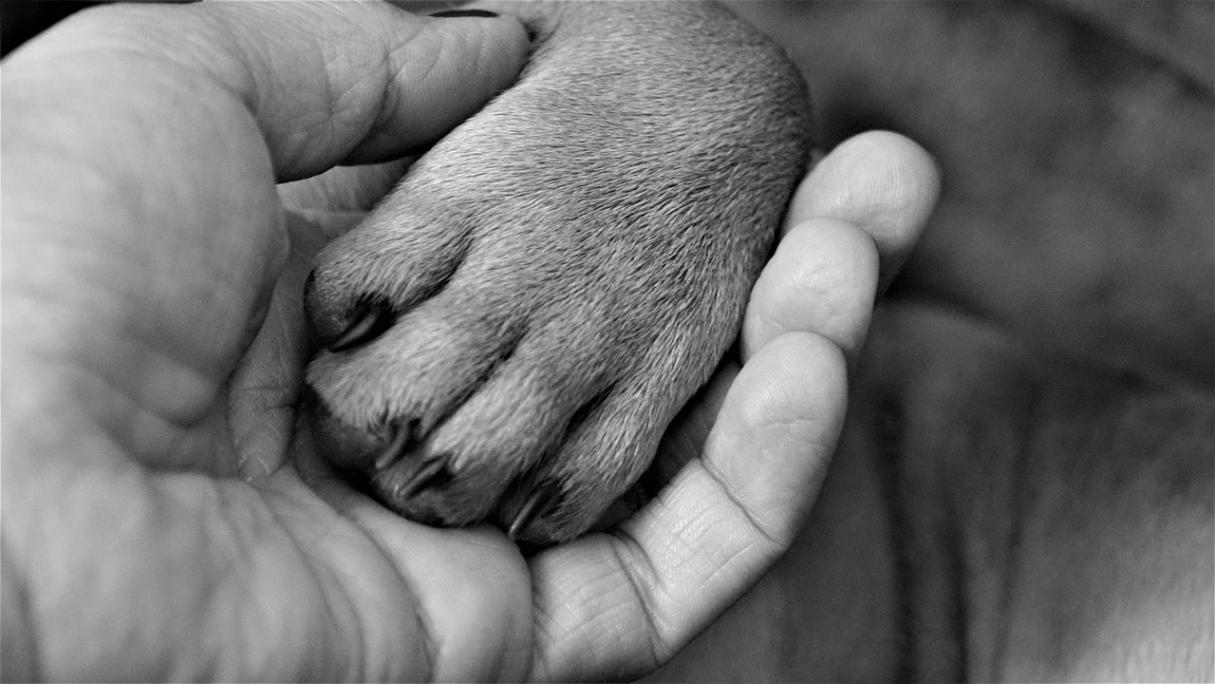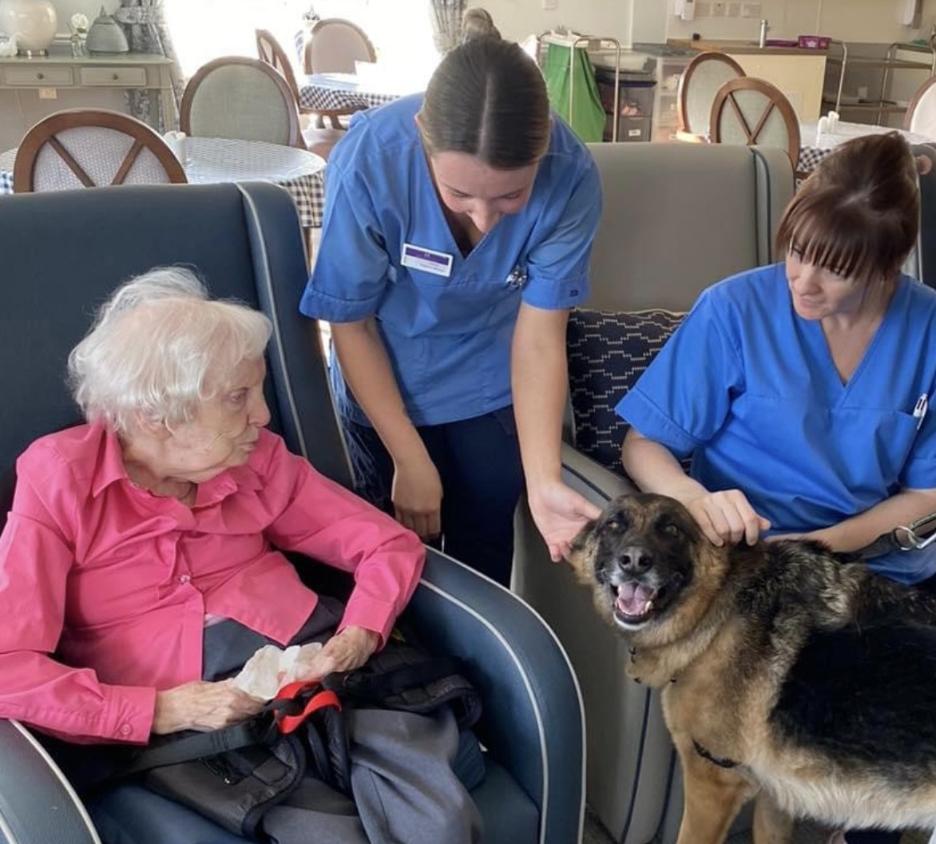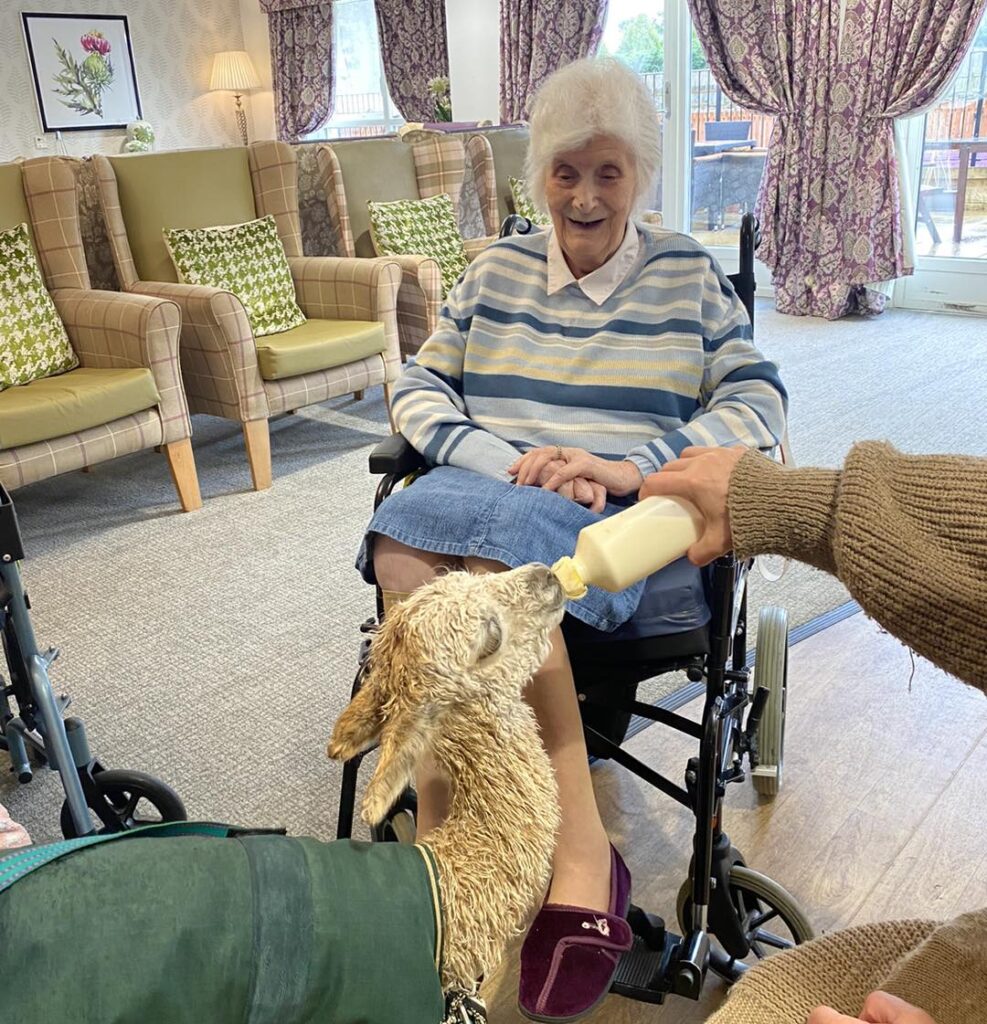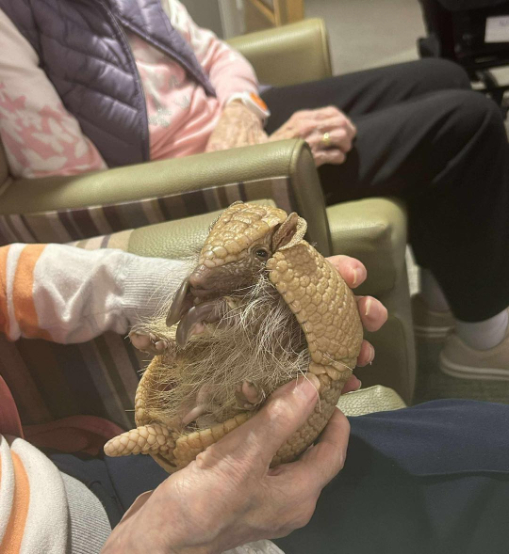The Benefits of Pet Therapy for Dementia Care

There are many care homes located around Scotland and Haddington Care Home understands the importance of animal assisted therapy, especially for those who are suffering from dementia. Regular animal interactions have both long lasting and immediate positive effects on someones mental, physical wellbeing, also improving any psychological symptoms. Within this blog we will look at what pet therapy is and the benefits of animal visits within a care home.
What is Pet Therapy?
Pet therapy is a guided interaction between a person and a trained animal. It’s a type of alternative or complementary therapy which enhances but doesn’t replace other treatments. This activity is offered in a variety of settings such as retirement living, community care, nursing homes, residential care, hospices and rehabilitation centres.
The animals used within pet therapy can range from smaller domesticated pets to large farm animals. Dogs are the most common type of animals used, but there are some others…
- Cats
- Rabbits
- Guinea Pigs
- Cockatoos
- Fish Aquariums
- Parrots
- Reptiles
- Horses
- Farm Animals
The Benefits of Pet Therapy
Research shows that when animals visit care homes and residents spend time with animals it can boost their health and wellbeing, whilst reducing negative feelings. This type of therapy uses trained animals as a form of companionship for residents of any age, no matter their medical needs as the overall aim is to boost emotional wellbeing, social iterations and cognitive abilities, especially for people with dementia.


The Benefits of Pet Therapy for Dementia Residents
Animal assisted therapy in care homes provide dementia residents or those with alzheimer's disease with affection, entertainment and enjoyment. Those who receive pet therapy can enjoy the following benefits:
- Reduces Social Isolation & Improves Social Wellbeing
Many people living with dementia can start to feel isolated and lonely, lacking motivation and a sense of person, possibly leading them to depression. Interactions with humans and animals has been enjoyed for more than 12,000 years. Natural healing which comes from interactions with animals continue to provide positive effects with many, especially those in a care home, suffering from dementia. Within intermediate moments, elderly people receive utmost affection with animals, with benefits lasting long even after a therapy session has ended. Overall, it encourages residents to talk about their experience with the animals, looking back and reminiscing.
- Increases Mental Stimulation
Due to pet therapy providing unconditional love, it enhances dementia residents to build up on their social skills with improved self confidence and self esteem. Pet therapy can also help with memory, cognitive and communication skills, from remembering their own pets name, a family pet, breed, bring back happy memories with animals and overall improving their motor skills, through giving basic commands to animals such as dogs.
- Improve Wellbeing and Mental Health
There are so many positive interactions with pet therapy and it can lead to further benefits within residents’ mind and body, reducing stress levels and providing a better balanced emotional and mental state. For those who cannot communicate verbally with others they can communicate through facial expressions and touch.
- Increase levels of oxytocin and boost mood
Oxytocin, serotonin and dopamine increases within your body whilst the bad cortisol decreases, meaning residents feel better right away, improving their physical health too, even without the emotional aspects of being with an animal.
- Lower Blood Pressure
It is also known that animal assisted interventions can have a calming effect on the mind and body, helping to relieve anxiety and enhance cardiovascular health. Overall, when you interact with an animal it provides a relaxing and calm atmosphere.


Animal Therapy at Haddington Care Home
As care specialists, we understand the positive effects that animal assisted therapy has within care homes, especially for a person living with dementia. With our range of facilities and activities, we can create a home within Haddington where our residents feel safe, loved and excited for their day ahead, all ensuring they live their best quality of life. This year we have many visits from our furry friends, including Sheba, our therapy dog. All of these interactions, including the therapy dogs all leave residents and staff members smiling from ear to ear, providing a positive impact.
Here at Haddington, we always strive to create a homely, welcoming environment whilst regularly seeking ideas and input from our residents as to what they would want to do and any other activities they may want to experience. All of our residents and staff alike enjoy spending time with all animals that visit our home, it has already proven to be a great positive activity that everyone looks forward to, making good memories to look back on.
Both residents and staff alike thoroughly enjoy quality time with all of the animals that have visited our home, and he has already proven to be a positive activity that everyone looks forward to.
For our residents with dementia care, we’re all in one big unit, with open plan dining and a lounge area, in which benefits our residents due to the freedom of movement they have along with personal space. It’s also easier for our staff to manage, everyone walks with purpose in our home. If you'd like more information on our dementia care in East Lothian, how we can support your loved one or more information on pet therapy, please don't hesitate to reach out to one of our staff members today.





